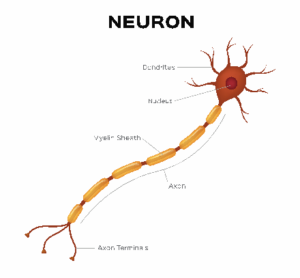Stress levels are on the rise in America. While stress affects your day-to-day quality of life, it can also create a host of health conditions and impact your brain both structurally and functionally. In order to prevent this damage, it is important to understand the connection between your brain and stress. what stress is actually doing to your brain.
When you experience stress, the brain triggers the release of a hormone called cortisol into your bloodstream. Small amounts of cortisol can help you focus and take action in a high pressure situation; for example, you can function better when you sit down to take a test or when you meet a not-so-friendly bear on your camping trip. However, too much cortisol can shrink the brain, damage your memory capacity, and impair communication between different regions of the brain.
Damage to Memory
In a particularly stressful time of life, you may have more trouble remembering your doctor’s appointment or where you left your car keys. This is because stress directly impacts short term memory and can inhibit your ability to make long term memories. Studies show that even mild exposures to stress before a memory retention test result in worse scores. Research also shows that individuals with higher levels of cortisol had smaller hippocampi – the region of your brain that is critical for learning and memory. This is because stress can kill brain cells and make it harder for new neurons to survive. If you have fewer neurons in your hippocampus, your memory function will decline and over time you will have a higher risk for developing Alzheimer’s disease. Too much stress can erase the benefits of lifestyle factors that have been shown to be helpful for better cognitive performance and longevity (factors such as eating healthier, exercising, learning new skills, and sleeping well).
Damage to Executive Function
 Not only does stress make it harder for you to remember the name of the coworker you just met, researchers found that individuals who experience chronic stress, have less gray matter (or brain volume) in their prefrontal cortexes. This region of the brain right behind your eyes is important for tasks such as planning, decision making, problem solving, self-control, and emotion regulation. This could explain why you experience more frequent mood swings, or why making a simple decision may feel more difficult during periods of high stress.
Not only does stress make it harder for you to remember the name of the coworker you just met, researchers found that individuals who experience chronic stress, have less gray matter (or brain volume) in their prefrontal cortexes. This region of the brain right behind your eyes is important for tasks such as planning, decision making, problem solving, self-control, and emotion regulation. This could explain why you experience more frequent mood swings, or why making a simple decision may feel more difficult during periods of high stress.
Damage to Communication
High levels of cortisol in the bloodstream, especially for long periods of time, can shrink and impair several areas of the brain. But stress can also change how the different brain regions communicate with each other. New research has found that chronic stress can result in the abnormal overproduction of myelin; a fatty substance that helps speed up the transmission of electrical signals between neurons.
 Too much myelin can disrupt the brain’s sensitive balance of communication. Studies found that in people who developed PTSD, excess cortisol from stressful experiences led to an excess of myelin. The excess production of myelin may have strengthened the connection between the part of the brain responsible for learning and memory (the hippocampus) and the part responsible for fight-or-flight responses (the amygdala). A faster connection between these two areas can result in stronger fear responses to a given situation. These findings suggest that increased cortisol may make it more likely for someone to develop depression, PTSD, or other mental disorders because the excess myelin disrupted the brain’s normal communication patterns. This new area of neuroscience research suggests that when it comes to the brain, too much of a good thing – high levels of myelin and stronger connections — can potentially do more harm than good.
Too much myelin can disrupt the brain’s sensitive balance of communication. Studies found that in people who developed PTSD, excess cortisol from stressful experiences led to an excess of myelin. The excess production of myelin may have strengthened the connection between the part of the brain responsible for learning and memory (the hippocampus) and the part responsible for fight-or-flight responses (the amygdala). A faster connection between these two areas can result in stronger fear responses to a given situation. These findings suggest that increased cortisol may make it more likely for someone to develop depression, PTSD, or other mental disorders because the excess myelin disrupted the brain’s normal communication patterns. This new area of neuroscience research suggests that when it comes to the brain, too much of a good thing – high levels of myelin and stronger connections — can potentially do more harm than good.
 While reading this article, you may have felt your own stress levels rise as you learned about the negative impacts of stress. However, because of something called neuroplasticity, the brain has an incredible capacity to bounce back and repair itself. Introducing a few routines in your day-to-day life such as meditation, exercise, and getting the proper amount of sleep can significantly reduce your cortisol levels and protect your brain from the effects of stress. The good news is that a just few simple practices can significantly boost the level of neuroplasticity in your brain and make you feel calmer and happier.
While reading this article, you may have felt your own stress levels rise as you learned about the negative impacts of stress. However, because of something called neuroplasticity, the brain has an incredible capacity to bounce back and repair itself. Introducing a few routines in your day-to-day life such as meditation, exercise, and getting the proper amount of sleep can significantly reduce your cortisol levels and protect your brain from the effects of stress. The good news is that a just few simple practices can significantly boost the level of neuroplasticity in your brain and make you feel calmer and happier.
If you’re interested in learning more about improving your brain function and memory, please visit us at www.neurogrow.com.
This blog was written by Lizzie Lewis, and edited by Dr. Majid Fotuhi.



